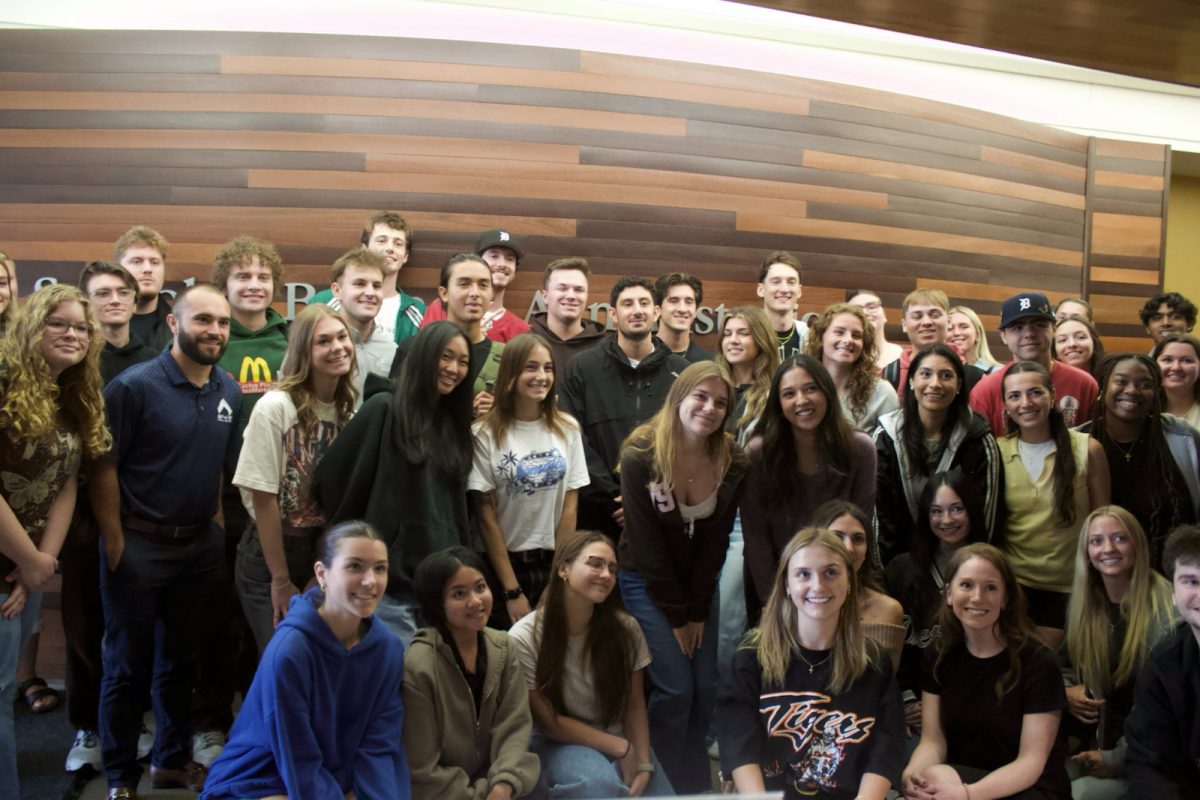Spotify is facing multiple controversies, including issues surrounding artificial intelligence–generated content and artists geoblocking their music in the State of Israel, as CEO Daniel Ek announced plans to step down and assume the role of executive chairman.
Ek, who co-founded the Swedish company in 2006, has led Spotify since its early days as a startup that helped revolutionize how the world consumes music. His shift marks one of the company’s most significant leadership transitions since going public in 2018.
While some students were unaware of the recent leadership change, several shared their opinions on the ongoing disputes.
Despite Ek’s claim that AI integration on Spotify would help users find music more easily and promote creative collaboration, the company has faced criticism for failing to label AI-generated content.
In recent months, thousands of AI-created tracks have flooded the platform, some uploaded by independent users through third-party distributors. Many of these songs mimic popular artists’ voices or styles without disclosure, sparking backlash from both listeners and the recording industry.
Spotify has reportedly removed large batches of AI-generated uploads, but critics argue that enforcement remains inconsistent and that clearer labeling standards are needed.
“I think that any form of generative AI, especially when it is used to replace actual art, is bad,” Roman Contesti, graphic designer for WXOU, said. He noted that several bands have removed their music from Spotify and switched to other streaming platforms as a result of AI proliferation.
AI-generated artists, Contesti said, impede the personal connection listeners form with music.
“I want to be listening to something that was made with intent,” River Dyke, WXOU program director, said. “The greatest songs I’ve ever listened to were written with these intense emotions and feelings and thoughts and experiences put into them. Something that a computer is generating based on a statistical text model is not something I want to be listening to.”
Michaiah Williams, secretary of Student Video Productions, shared a similar view, saying AI artists interfere with “the people that actually put their artistry into their music.”
In response to the ongoing violence in Gaza and Israel, some Spotify artists have chosen to geoblock their music in Israel as a form of protest. The movement, known as “No Music for Genocide,” aims to express solidarity with Palestinians by restricting access to their work in Israel through Spotify’s streaming service.
The online campaign began in late 2023 as tensions escalated in the region and quickly spread across streaming services, encouraging musicians to use their platforms as tools for political expression.
Contesti maintains a positive opinion on artists taking part in the boycott.
“I think that it is important. I strongly agree with it,” he said.
Dyke said he understands the artists’ perspective but remains uncertain about the impact.
“I get where they’re coming from,” he said, “but I’m not sure how much of a difference it will actually make.”
Maya Hall, a member of Student Video Productions, offered a contrasting view. “We neglect the people in Israel – the ones who are innocent citizens,” she said, questioning what artists are “truly doing” by blocking their music.
Williams added that artists should reflect on their motives.
“It’s important that artists distinguish whether they’re joining the boycott because of their own beliefs or because they want to appear a certain way to their audience,” she said.
The debate reflects a broader question about the intersection of music, politics and ethics – whether streaming platforms should remain neutral distributors or allow artists to make political statements through these access restrictions.
Spotify has not released an official statement linking Ek’s transition to the controversies, though analysts note that public scrutiny over AI ethics and political activism on the platform has intensified in past years.





